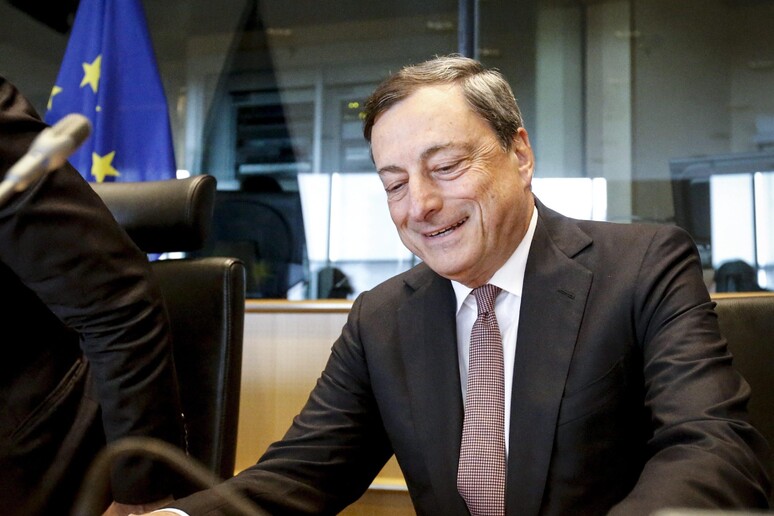The spread between Italy's 10-year BTP State bond and the German equivalent dropped to 99.9 basis points on Thursday. It is the first time that the spread, a key measure of investor confidence and of Italy's borrowing costs, has gone below the 100-point threshold since March. Italy has returned to positive growth this year after years of recession and the country has also benefited from the European Central Bank's quantitative easing programme Italy risked a Greek-style financial meltdown at the peak of the eurozone debt crisis in 2011 when the spread went over 500 points with yields above 7%.
Quantitative easing is working to boost credit although risks on inflation and growth remain, European Central Bank President Mario Draghi said Thursday. He said the ECB would re-assess QE in the light of the latest growth and inflation forecasts in December. With QE, the ECB is buying financial assets from commercial banks and other financial institutions, thus raising the prices of those financial assets and lowering their yield, while simultaneously increasing the money supply.
ALL RIGHTS RESERVED © Copyright ANSA











